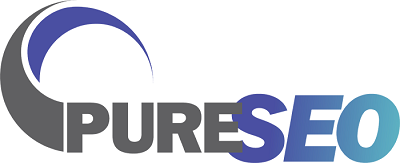SEO Experts in Auckland - The Definitive Guide to Finding an SEO Provider for Your Business Website
Avoid the uncertainty and fear of overpaying for the unknown - our definitive guide to SEO providers in Auckland has you covered
Updated 17 November 2023
Summary - And Why We've Written This Guide to Benefit Your Business:
Our view: MoneyHub relies on SEO to bring hundreds of thousands of New Zealanders to our site every month. We have built this since 2018 and compound the user growth month after month. Because SEO is integral to our business, we don't use an SEO provider. However, we have a thorough understanding of what they should (and should not) be doing when working for a business like yours. Unfortunately, there are some dubious practices, and many strategies touted by some "experts" are completely ineffective.
This guide outlines everything you need to know to make an informed choice about SEO while avoiding the rip-offs and disappointments that are, unfortunately, quite common. We aim to provide information so that every business owner contemplating SEO can make a better-informed decision, save money, get results that make a difference and/or be confident in their approach.
We outline:
Disclaimer: MoneyHub has not engaged any of the providers listed below - we present the results of our research in good faith and update it periodically.
- Looking for an SEO provider is a very unfamiliar process. You know you want higher rankings on Google for search terms but don't know how to do it yourself and accept it will cost money for some help.
- The SEO "industry" has no service standards; it is not regulated, nor is it easy to compare providers. And worst of all - it can be very expensive. This Reddit post from November 2023 discussed how SEO in New Zealand can, when done wrong, be a complete scam. Many times it is, in no uncertain terms, done wrong.
- SEO providers usually charge an ongoing monthly fee. In exchange for that, they will use their skills to get your website to rank for the valuable keywords for your business. You will also get reports each month which outline the progress. You should also notice more sales calls, more emails and more website visits. While SEO providers may argue this will "take time", a good provider should be able to overhaul a website and get you on track within 1-3 months.
- Know this: You may get spam emails offering to do your SEO from overseas - we suggest you ignore these. The services are usually substandard, and you'll have no oversight of what you're paying for. The work these "agencies" provide may also harm your website's Google search performance. For many reasons, these emails are best ignored and deleted.
Our view: MoneyHub relies on SEO to bring hundreds of thousands of New Zealanders to our site every month. We have built this since 2018 and compound the user growth month after month. Because SEO is integral to our business, we don't use an SEO provider. However, we have a thorough understanding of what they should (and should not) be doing when working for a business like yours. Unfortunately, there are some dubious practices, and many strategies touted by some "experts" are completely ineffective.
This guide outlines everything you need to know to make an informed choice about SEO while avoiding the rip-offs and disappointments that are, unfortunately, quite common. We aim to provide information so that every business owner contemplating SEO can make a better-informed decision, save money, get results that make a difference and/or be confident in their approach.
We outline:
- Read this first - 5 Essential SEO Questions & Answers
- What questions should I be asking my SEO provider (and what answers should I expect)?
- 6 Must-Know SEO Facts
- Trusted Auckland SEO Companies - Our Research and Results
- 5 Steps to do your own SEO for free
- Recommended experts for DIY SEO
Disclaimer: MoneyHub has not engaged any of the providers listed below - we present the results of our research in good faith and update it periodically.
MoneyHub Founder Christopher Walsh shares his comments on SEO providers
|
"Before starting MoneyHub and after leaving a career in finance, I co-founded a website design and hosting business. To market it cost-effectively (i.e. for free), I taught myself as much as I could about SEO. It was a learn-as-you-implement process, but the results were real, and it helped us get a sustained flow of leads.
However, my co-founder and I also experienced the worst of SEO - dodgy SEO providers. We hired a company, paid $2,500 a month and were delivered nothing. This is not unusual, and the churn rate of SEO clients is very high. Yet despite this, many providers still refrain from doing "proper" SEO. It's a downward spiral for both the client and provider when this is the situation. Please be very careful before hiring any SEO provider. Ask as many questions as possible, and make sure you know the answers. Our SEO Q&A checklist below will help you understand what's important to get meaningful results that help your business grow. The last thing I want is to see you stuck in a contract where you pay for something you don't think is worth the money. To determine which providers excel in the SEO industry, we have analysed each SEO provider's own SEO effectiveness. My thinking is simple - SEO services are expensive to advertise; any company that knows what they're doing will use their SEO skills (i.e. the services they're selling to you) to rank their website high in Google to get free leads. If they're not ranking high, I have to wonder why not. Further to this, please be careful of the cowboys - they thrive in the SEO world because clients often know nothing about what they want, need or pay for. It's a recipe for wasted money. However, the good news is that there are good players in the industry, many of whom we list below". |
Christopher Walsh
MoneyHub Founder |
Read this first - 5 Essential SEO Questions and Answers
SEO isn't as logical as picking a business bank account, broadband provider or even web designer. To help you understand the basics, we have explained some essential FAQs upfront before you go any further.
What is SEO?
SEO stands for ‘search engine optimisation’, which means improving your website’s ranking in search engines. Because 94%+ of New Zealanders use Google, SEO is primarily concerned with how your website appears in Google.
For example, if you’re a plumber in Auckland and someone Googles ‘plumber Auckland’, if your website is #1, you will most likely get far more clicks to your website (and phone calls) than the plumber who is #10. The higher your website appears for relevant, high volume keywords, the better placed you are to make additional revenue.
For example, if you’re a plumber in Auckland and someone Googles ‘plumber Auckland’, if your website is #1, you will most likely get far more clicks to your website (and phone calls) than the plumber who is #10. The higher your website appears for relevant, high volume keywords, the better placed you are to make additional revenue.
Why does SEO matter?
SEO matters because the higher your website is in Google, and the more relevant it is, generally, the more business you will do. That’s why every business owner wants to be #1 in Google for their industry, be it ‘builder Auckland’, ‘electrician Auckland’, ‘insurance broker Auckland’ etc. The regularity that your website shows up high in Google results can influence your overall business revenue.
Generally, SEO work can be short-term (i.e. fix up a website and improve it, add content and make sure it displays correctly) and long-term (i.e. adding regular information, monitoring search rankings and improving the website experience overall).
Be careful - keywords can make or break the success of SEO work. You must rank for the high-volume relevant keywords, not specific "long-tail" searches. This is best explained with an example:
Generally, SEO work can be short-term (i.e. fix up a website and improve it, add content and make sure it displays correctly) and long-term (i.e. adding regular information, monitoring search rankings and improving the website experience overall).
Be careful - keywords can make or break the success of SEO work. You must rank for the high-volume relevant keywords, not specific "long-tail" searches. This is best explained with an example:
- Matthew wants to hire an SEO provider to help his Great South Road-based accountancy firm, Friendly Accounting, rank in Google.
- The SEO provider quotes Matthew $2,500+GST a month and says his website will rank #1 or #2 for the keywords "Accountant Great South Road" and "Friendly Accounting Great South Road" and "Best Accountant Great South Road".
- The first problem is that the SEO provider cannot guarantee where you will rank for keywords (more about this in our 6 Must-Know SEO Facts below)
- The second problem is that all of these keywords have low search volume. It's arguable no one types any of these phrases into Google. Instead, people looking for an accountant would likely search for "Tax Accountant Auckland" and "Best Accountant Auckland" etc. Many businesses make this mistake - before agreeing to any service, be clear about the keywords (and make sure there are at least hundreds of searches per month for each keyword).
What does an SEO provider do?
The answer is, it depends. A good SEO provider will first audit your website and point out any issues to fix. Google wants to show its own users websites that are fast, complete and functional. Issues and problems that affect how Google ranks your website can include:
After that, the SEO provider will invest time to create links to your website, such as business directories and links to other related businesses. For example, if you’re an insurance broker, they will want you to be linked to insurance associations, insurance companies and insurance blogs. This means that the website will be seen to be relevant to 'insurance' in the eyes of Google. If they are a good SEO provider, they will also want to create content about insurance to attract new viewers and potential customers. Any good SEO provider will know that having relevance in your industry will help your website to rank.
- Slow-loading pages – for example, images are too big and mean a page takes 10+ seconds to load)
- Broken links – restoring broken links means visitors can navigate around the website without getting to a dead-end.
After that, the SEO provider will invest time to create links to your website, such as business directories and links to other related businesses. For example, if you’re an insurance broker, they will want you to be linked to insurance associations, insurance companies and insurance blogs. This means that the website will be seen to be relevant to 'insurance' in the eyes of Google. If they are a good SEO provider, they will also want to create content about insurance to attract new viewers and potential customers. Any good SEO provider will know that having relevance in your industry will help your website to rank.
How much does SEO cost?
The answer is, it depends. We believe that you can do a lot of it yourself without too much effort or skill. However, most SEO providers will charge at least $500 per month, and in some cases, around $2,000 (and more).
SEO is an expensive investment, and if you get it wrong, it could be a huge waste of money. We believe that if you’re going to pay, you need to know what to expect and what to ask upfront. You also need to be clear about what you expect while being reasonable about the likely results. SEO takes time, patience and skill – if you or your SEO provider lack any of these, your results will suffer.
SEO is an expensive investment, and if you get it wrong, it could be a huge waste of money. We believe that if you’re going to pay, you need to know what to expect and what to ask upfront. You also need to be clear about what you expect while being reasonable about the likely results. SEO takes time, patience and skill – if you or your SEO provider lack any of these, your results will suffer.
What do I need to know about keywords?
Keywords are the search terms specific to your business that people type (or talk) into Google. For example, if you were a plumber in Auckland, your keywords would be ‘plumber Auckland’, ‘plumbers Auckland’, ‘emergency plumber in Auckland’ or something similar. Your SEO success will depend on where in Google you rank for these and how much traffic you get. The more volume the keyword receives (e.g. how many people per month type it into Google), the more potential for increased leads being generated. Conversely, if you rank #1 or #2 for a keyword no one searches for, your results will be insignificant.
Know This: Your SEO provider should set you up with a list of keywords specific to your business and track those keywords (and other metrics) in the monthly reporting. If they don’t plan to do that, we take the view that this is an automatic red flag. Without variances to measure that arise between one month and another, there isn’t much you can match directly from their SEO efforts.
Know This: Your SEO provider should set you up with a list of keywords specific to your business and track those keywords (and other metrics) in the monthly reporting. If they don’t plan to do that, we take the view that this is an automatic red flag. Without variances to measure that arise between one month and another, there isn’t much you can match directly from their SEO efforts.
What questions should I be asking my SEO provider (and what answers should I expect)?
To demystify the jargon of SEO, we’ve shortlisted seven questions that make initial conversations with an SEO provider that much more informed:
- What do you do for SEO? The answer should focus on auditing your website and fixing errors, creating relevant industry links to other websites, content creation and regular monitoring. If you don’t hear at least two of these tasks being mentioned, you may not have found the best SEO provider.
- What keywords should we be targeting, and what are their volumes? The answer should focus on ‘short’ keywords, such as your industry + location. For example, ‘florist Auckland, ‘dog grooming Auckland’. If you hear suggestions that are specific to your suburb, be aware that the search volumes are very low, and you may rank high in Google, but traffic to your website will be minimal. For example, ‘Plumber Auckland’ gets 7,500 searches per month, whereas ‘Plumber Torbay’ gets < 100. If you have a physical business, you need to hear keywords that are Auckland-focused. Not suburb or street-focused.
- What reporting will I receive? You want to hear answers that offer monthly data and focus on specific keyword ranking movements (i.e. going from #6 to #2 in Google) and traffic volume changes (i.e. going from 500 visitors in January to 800 in February) as these are fundamental. If the SEO provider doesn’t offer this, then they do not measure their work.
- What is the monthly cost? Ask this upfront and be prepared to hear some big numbers. Of course, you can negotiate on this as SEO providers know that a long-term relationship with a client is very valuable.
- Is there a contract, and if so, what is the term of service? This is important, as many SEO providers will tie you into a minimum period. You shouldn’t sign up for anything more than three months, given the risks involved. However, it will take at least 1-3 months to see results.
- What clients have you worked on, and what were their results? You should expect to hear about existing clients and how SEO has helped them. Be sure to check the keywords they mention and challenge if they are relevant. For example, ranking a dentist #1 for ‘Dentist Auckland’ is not the same as ranking a dentist #4 for ‘Dentist Newmarket’.
- Have you got experience in my industry? Whatever your industry is, you need to know if they can help and what expertise they bring. You know your industry better than any SEO provider, so make sure whatever they are saying makes sense.
6 Must-Know SEO Facts
To make navigating SEO providers easier, we have outlined some key facts to manage your expectations and help you pick the right company to help you.
Hiring an SEO company does not guarantee Google resultsAny SEO company cannot guarantee Google results. If they are promising results, then this is a massive red flag. No one knows how Google works, so no one can manipulate it. For example, MoneyHub would like to be #1 for ‘contents insurance’, but it’s #4. While we internally improve our work to get to #1 in time, we know that you can’t pay to be #1.
For this reason, you need to be realistic with your expectations, as well as patient. SEO providers are not wizards, and the competition without your industry will also affect the SEO results. For example, if you want to be #1 for ‘dentist Auckland’, this, generally, will be more difficult than being #1 for ‘dentist Torbay’ given the number of dentists competing in Auckland (hundreds) vs Torbay (1-3 etc.). |
If you don’t ask the right questions, you won’t know what you’re paying forThis is true with any purchase, but SEO is unique in the fact that there isn’t a measurable product or agreed on result. Asking the right questions upfront means you let the SEO provider know that you’re serious, informed and have reasonable expectations. If you go in blindly and let the SEO provider work away without understanding what you’re getting for your money, you have no way to assess the results.
|
In general, ‘link building’, ‘press releases’ and overseas ‘citations’ are not relevant anymore. It’s all about content and relevanceOur view is that having a bunch of irrelevant links to your website won’t help your SEO. For example, if you’re an Auckland plumbing business, having websites about dog grooming, gardening, IT, or anything else unrelated to plumbing or business directories won’t be of use. The same can be said about press releases on American websites.
This is a popular ‘technique’ of some SEO providers, but it won’t help your website. Also, citations, which are links from overseas (often American) business directories to your website aren’t valuable either. From Google’s perspective, why is a local business in Auckland mentioned in a website profiling Texas-based businesses? We believe that some SEO experts still prefer to create links first without consideration of their effects. If they get it wrong, it can adversely affect your Google rankings. |
Blog posts are out – everyone is too busyIf an SEO provider talks about making blog posts, this should be a red flag. Today, everyone is too busy, and blog posts of 100-300 words rarely pick up any traction on Google. SEO experts would agree that the blog post is fairly redundant. Instead, Google wants to show people destinations, such as fully-complete guides. Not the views of a business owner which have no relevance or value on the internet.
|
Make sure your website has complete information before engaging an SEO expertIt’s not complicated – ask yourself, does your website solve a reader’s needs? For example, if you’re a florist, does the website have all the flower options, prices, delivery information and a phone number to call? Websites that aren’t complete mean searchers look for other websites, and your website becomes less relevant.
|
We believe that some SEO providers take money every month…and do very little (or do it wrong)Our researchers have been in touch with many businesses and organisations who asked us to advise them on SEO costs and results. To be able to respond, we looked at their websites, links from other websites and general Google ranking. In one case, a school in the South Island, we saw zero work being done (no links, no new content, no advisory on the website, no reporting despite a monthly invoice of $500+GST being sent. Such instances are not rare, so it’s very important to know upfront what your SEO provider will be doin. We strongly suggest you avoid signing any contracts unless you trust the service being delivered.
To avoid any problems, you will need to ask for monthly reports and understand what is being reported. Specifically, your keyword search ranking will be shown, as will traffic numbers to your website. A good result is seeing a keyword go from #8 to #5 and/or traffic growth of 500 to 750 visitors over the same period. |
Trusted Auckland SEO companies - Our Research and Results
Our list below covers SEO companies operating all over Auckland and working with clients locally and around New Zealand.
Our methodology takes into account the providers website (and how it performs), which we feel is important given you're paying for an SEO service. For example, we would not consider an SEO provider ranking on page three of Google for "SEO Auckland" is, objectively, as capable as a provider appearing on page one. Metrics we look at include, but are not limited to, the following:
Disclaimer: We accept that handpicking SEO providers isn't a science and our approach is subjective. Also, very few SEO providers reveal their clients, so we're unable to analyse their client websites, nor do we know the scope of the services provided. Our approach has been undertaken in good faith to help every business owner, marketing manager, or startup founder find an SEO provider that has the best chance of delivering.
Important - Pricing: SEO providers do not, generally, display prices. This is because every client brings a specific situation and need. We suggest being cautious of any provider with "fixed monthly pricing" as they're unlikely to offer a custom service. Before making any decision, we suggest contacting 2-4 providers to explain what you're looking for. We believe prices and services will vary between providers.
Our methodology takes into account the providers website (and how it performs), which we feel is important given you're paying for an SEO service. For example, we would not consider an SEO provider ranking on page three of Google for "SEO Auckland" is, objectively, as capable as a provider appearing on page one. Metrics we look at include, but are not limited to, the following:
- The provider's ranking for relevant keywords (we shortlisted the most popular - "SEO Auckland", "SEO Company Auckland", "SEO Agency Auckland" and "SEO NZ" specifically, while considering a few others).
- The providers' page speed loading times (this is an important Google ranking metric, and one that a good SEO provider should be aware of).
- The number of broken links on the provider's website (while this isn't critical, we argue a good SEO provider should be ensuring their website is fully functioning).
- The clarity of the service offered by the provider (we favour providers who are clear with what they offer).
- The provider's online reviews (we take these into consideration, especially their response and explanations around any negative experiences).
Disclaimer: We accept that handpicking SEO providers isn't a science and our approach is subjective. Also, very few SEO providers reveal their clients, so we're unable to analyse their client websites, nor do we know the scope of the services provided. Our approach has been undertaken in good faith to help every business owner, marketing manager, or startup founder find an SEO provider that has the best chance of delivering.
Important - Pricing: SEO providers do not, generally, display prices. This is because every client brings a specific situation and need. We suggest being cautious of any provider with "fixed monthly pricing" as they're unlikely to offer a custom service. Before making any decision, we suggest contacting 2-4 providers to explain what you're looking for. We believe prices and services will vary between providers.
PureSEOContact details:
|
Chalk n CheeseContact details:
|
Firefly DigitalContact details:
|
Search RepublicContact details:
|
5 Steps to do your own SEO for free
It’s not impossible to get the basics covered. You’re best to check your website now to identify any limitations and then create some relevant links.
- Visit Google Page Insights Speed Tester, a free service, to see how fast your website loads - This is a significant factor in how Google ranks your website. Slow page loading annoys users, so Google will favour fast-loading pages. If you find a few large images, approach your web designer and ask them to be reduced in size, or do this yourself (change the format to JPEG and reduce the dimensions). Anything over 250KB is too large – 10-30 KB is more suitable.
- Google your website and see what comes up – to the descriptions underneath make sense, and do they entice people to click, or can you improve them? See our example for MoneyHub – does the description encourage you to click?
- Create some links to Auckland-specific directories – you can register your business for free with Finda.co.nz and Neighbourly.co.nz. You should also create a Facebook page for your business if you haven’t already and add your website address. We can also get a Google for Business page for free, which will make you more visible on the web. Best of all, the more reviews you get, the better your presence online.
- Associate with relevant websites – look at your industry, and see if you can link your website to blogs, professional body websites and similar related websites.
- Create content people ask and look for – if you have the same questions asked every day in your business, there is an opportunity to write a guide or help sheet that addresses these questions. It may take some time, but the efforts are often worth the upfront investment. Remember - Think about what Google wants to show in search results, and that should shape how you do SEO
Recommended experts for DIY SEO
- Brian Dean Backlinko – Brian is perhaps the world’s leading expert on content marketing, meaning the creation of website content to attract Google users. While Backlinko offers a paid program, Brian makes an endless amount of materials available for free. Check out <> and <> to start with, which explains everything you need to know to boost your website.
- Neil Patel – Neil is also an expert in content marketing, with detailed specialist guides to analysing your website and explaining SEO in general. Like Brian, Neil does not charge for his information.
Related guides
If you have an experience with an SEO provider or SEO in general, and you think we should know about it, please contact our research team.
- Web Design Auckland
- Web Design Hamilton
- Web Design Tauranga
- Web Design Wellington
- Web Design Christchurch
- Web Design Dunedin
If you have an experience with an SEO provider or SEO in general, and you think we should know about it, please contact our research team.


















